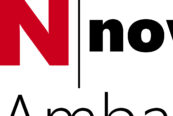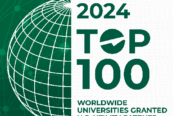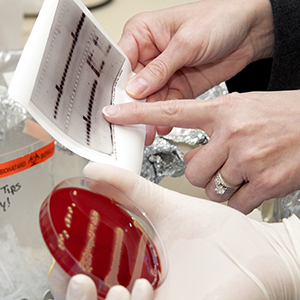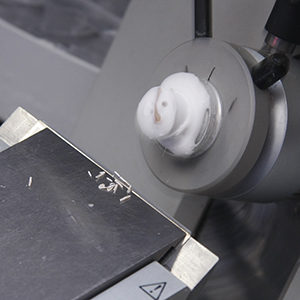OMAHA, Neb. (Aug. 11, 2009)—An investigation into nutraceutical products falsely advertised as containing raw creatine ethyl ester, a creatine pronutrient with increased solubility, was initiated earlier this summer in an effort to protect a UNMC invention and consumer confidence in a dietary supplement.
UNMC is the owner and UNeMed Corporation is the exclusive sublicensee of a patent portfolio directed generally to creatine ethyl ester (CEE) as a nutritional supplement. UNeMed is UNMC’s technology transfer company. The United States International Trade Commission began the investigation June 17 based on a complaint filed by UNeMed.
The centerpiece of this portfolio was the recognition by the named inventors – Jonathan Vennerstrom, PhD, of UNMC’s College of Pharmacy, and Donald Miller, PhD, of the University of Manitoba and a former UNMC faculty member – that an esterified, or changed, form of creatine is more readily absorbed into the human body. The result is that, to gain the same benefits of creatine, one need ingest less of the esterified form.
The commission’s investigation, instituted pursuant to section 337 of the Tariff Act of 1930, will seek to determine whether the raw materials contained in CEE products sold by certain companies should be barred from importation into the United States.
Companies under investigation are:
- Bodyonics, Ltd. of Hicksville, N.Y.;
- Engineered Sports Technology, Inc. of Orlando, Fla.;
- NRG-X Labs of Bentonville, Ark.; and
- Proviant Technologies, Inc. of Champaign, Ill.
The investigation also will determine if these companies should be enjoined from selling products containing such raw material already imported into the United States.
Two of the original respondents named in the complaint, San Corporation of Oxnard, Calif., and Controlled Labs of New Rochelle, N.Y., have amicably resolved their dispute with UNeMed.
UNMC’s patent pending composition of CEE as a dietary supplement has been licensed to Vireo Systems, Inc., of Madison, Tenn., which makes raw CEE for creams and powders to manufacture products for retail distribution and sale.
“This investigation is about more than protecting the integrity of the research of Drs. Vennerstrom and Miller,” said UNeMed President Michael Dixon, PhD “It is to help provide some degree of accountability in an industry that appears to be woefully under-regulated. We are talking about products that are marketed for human ingestion, and, for the most part, there is nothing or no one regulating what goes into these products. This investigation is about more than protecting the integrity of the research of Drs. Vennerstrom and Miller. It is to help provide some degree of accountability in an industry that appears to be woefully under-regulated.”
An initial obstacle facing UNeMed in the investigation has been locating the current whereabouts of the remaining four respondents.
“It seems as if the four remaining respondents have disappeared into thin air. They continue to operate Web sites and their products continue to be sold online, but several attempts to reach them at their respective last-known addresses have proven futile,” said George Summerfield, counsel for UNeMed. “Their complete lack of participation in the investigation has necessitated UNeMed’s seeking a default determination against them from the commission.”
This, of course, exacerbates the problem of regulation in an industry where companies can so freely change names and locations, he said. Nonetheless, Summerfield said, “We are confident that we will ultimately prevail in this investigation, either through contested proceedings or by default on the part of the remaining respondents.”











